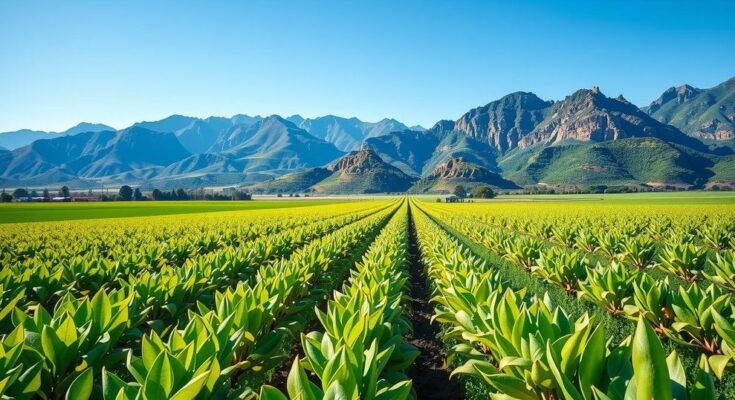Farmers in Madagascar’s Sava region face severe challenges due to climate change, impacting their agricultural practices and livelihoods. A study revealed that, despite experiencing adverse weather changes, many farmers are not adapting their methods due to financial constraints. Only a small fraction of farmers are implementing adaptive strategies, while the majority remain vulnerable to poverty and climate instability. Future research seeks to further understand farmers’ adaptations and needs.
Farmers in Madagascar, particularly in the Sava region, are encountering severe challenges due to climate change that disrupts traditional farming practices. A recent survey conducted by Duke University and Madagascar’s University of Antananarivo among 479 small-scale farmers revealed widespread concerns regarding changes in rainfall and temperature. These alterations pose significant threats to crops, while farmers struggle to adapt to the new environmental realities.
The study found that nearly all farmers reported difficulties related to changing weather patterns, yet a vast majority are not modifying their farming techniques. Many farmers rely on traditional methods and tools to cultivate vanilla, rice, bananas, and coffee, but issues such as drying water sources and increased pest populations have intensified their challenges. The results, gathered in villages near Marojejy National Park, underline the urgency of the issue.
Interestingly, only one in five farmers has implemented adaptive strategies such as soil improvement or altering crop cycles, which is significantly lower than adaptations seen in farmers from other countries facing similar climates. Notably, those with more resources, such as durable goods, exhibited greater adaptability, suggesting that poverty remains a critical barrier to change for the majority of farmers, where approximately 80% live below the poverty line.
Adaptation programs aimed at easing financial strains were highlighted as potential solutions to assist poorer farmers. Suggestions for improvement include integrating fruit trees into fields and fish farming in rice paddies, which could enhance food security, fertilization, and pest management. However, farmers in Madagascar already endure the risks of cyclones and tropical storms, which threaten their livelihoods and transportation to markets.
Looking beyond Madagascar, the trend of rising temperatures and decreasing precipitation is also observable globally, exacerbating challenges for smallholder farmers, who contribute significantly to the world’s food supply. Future research aims to expand the survey to more villages and assess the impact of farmers’ adaptive measures while recognizing climate change’s rising demand for flexibility and resourcefulness in farming practices.
The realities of climate change present substantial barriers to smallholder farmers in Madagascar, impacting their ability to maintain traditional agricultural practices. The findings underscore the need for adaptive strategies that can alleviate the financial burdens on these farmers and offer innovative solutions to ensure food security. As climate conditions continue to change, enhancing adaptability and resilience among vulnerable farming communities will be crucial for safeguarding their livelihoods and the future of agriculture in Madagascar and similar regions.
Original Source: www.eurekalert.org




